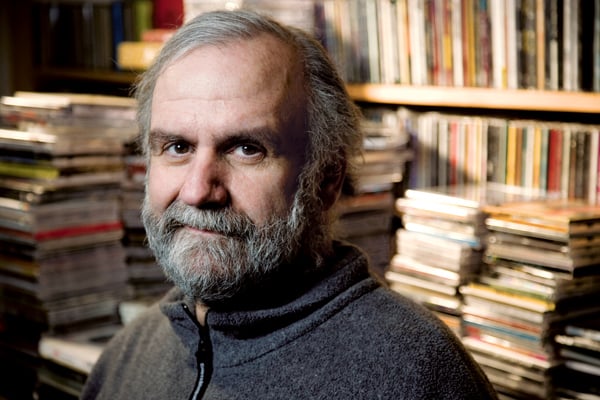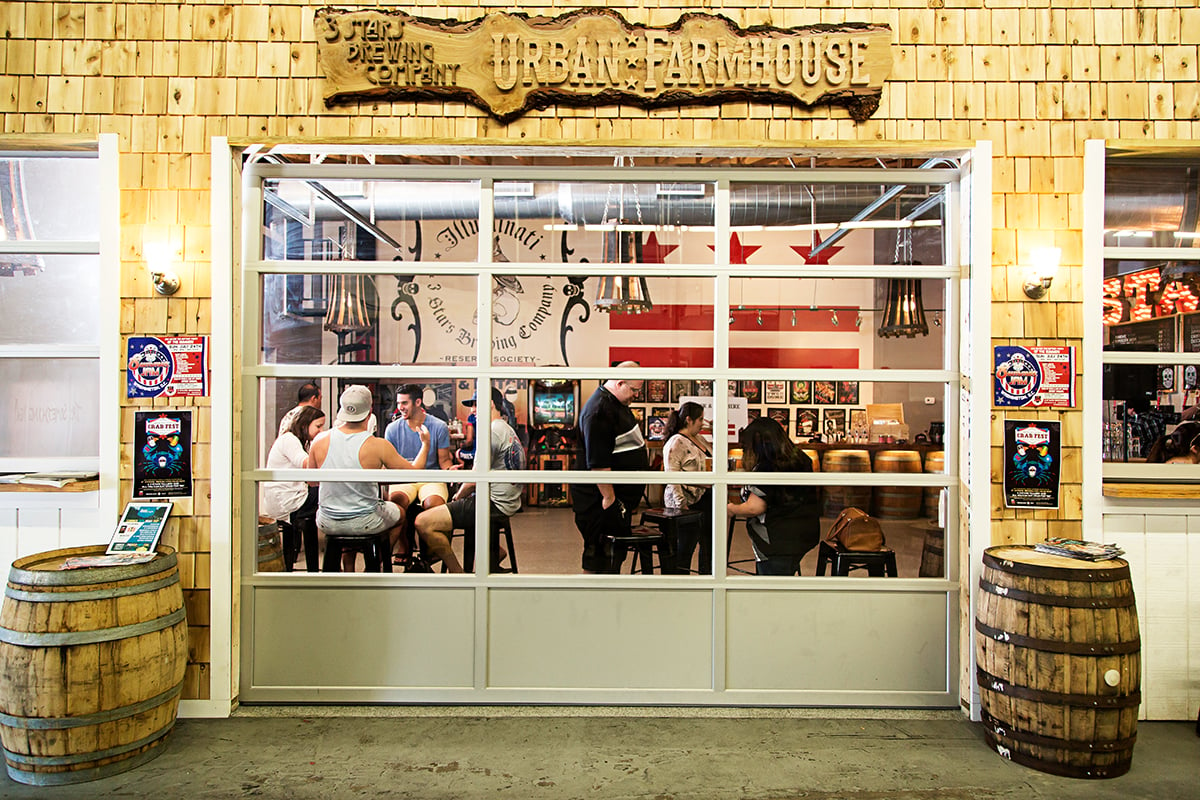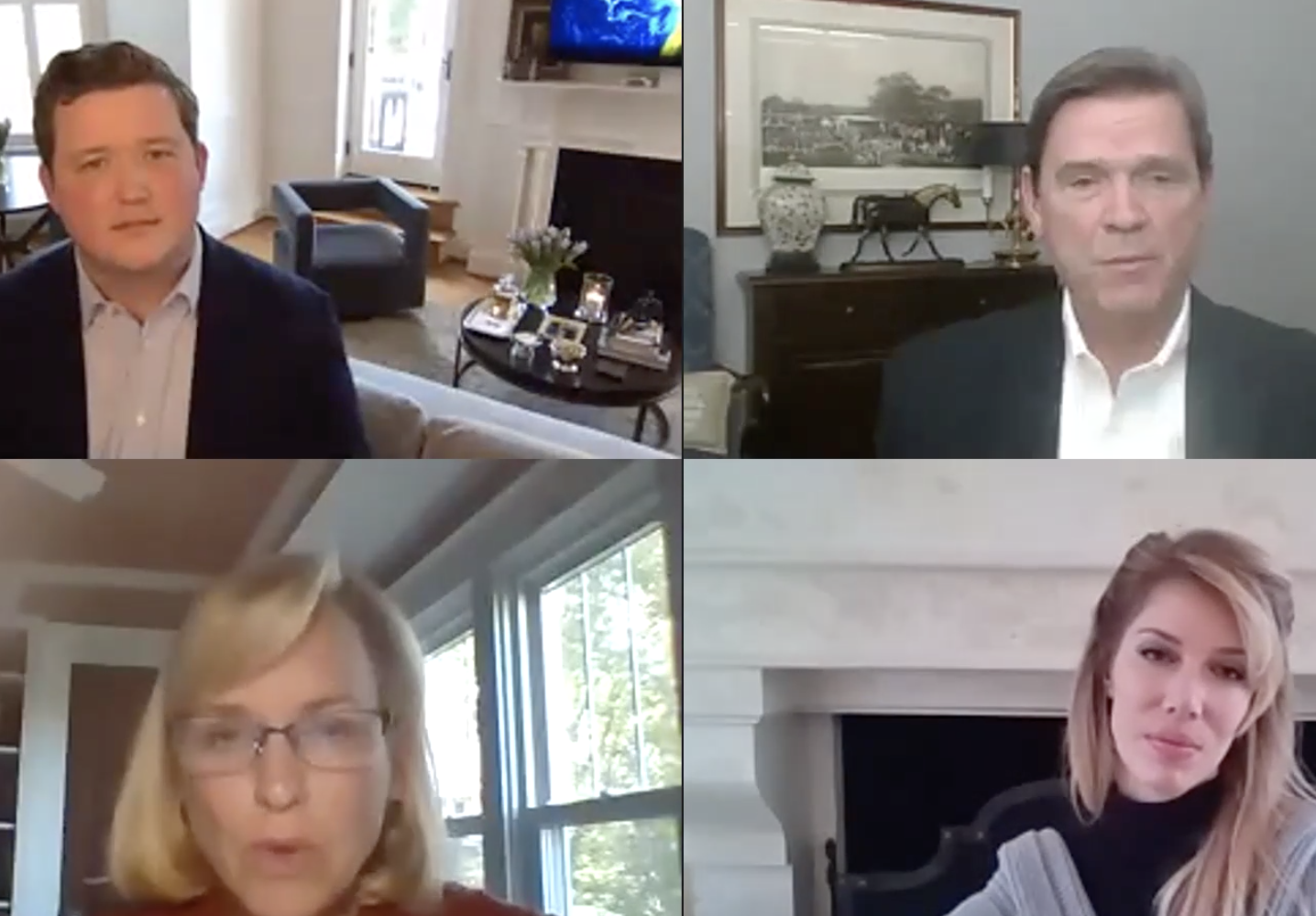Richard Harrington has been writing about music for more than 40 years, many of them at the Washington Post, starting in the late 1970s as a freelancer, then as a staff writer in Style, and eventually as pop-music critic. In 1999 or so—“Can’t remember exactly,” he says—he moved to the Weekend section, where he continued to write about area bands and songwriters. He retired last May.
“Washington has an amazingly rich musical history,” says Harrington, 62. When the acoustic-folk revival swept the country in the 1960s, he was playing the local hootenanny circuit, opening at such DC clubs as Basin’s Top of the Lounge for people including Dave Van Ronk, the singer/songwriter who shared Greenwich Village stages with Bob Dylan and Joni Mitchell. “But I wasn’t very good,” Harrington says. “An average guitar player and singer at best.”
Harrington was born in Switzerland—his dad was in the Foreign Service—and moved to Washington as a boy. He attended private schools, including the Harvey School in New York, where he played in a folk group with fellow student Loudon Wainwright. “I taught him how to play guitar, which is probably why he’s not very good at it,” Harrington says.
Harrington attended Wilson High School in DC but never made it to college. “It being the ’60s, the streets of Washington were much more interesting than any college could be,” he says. The streets pulsed with the rhythms of an array of live music—from folk, country, and rock to jazz and blues—and Harrington started spending more time writing about the scene than playing on it.
I sat down with Harrington at his home in Takoma Park, where he is at work on a book about controversy in the music industry, to find out what lasting impressions the local music scene has made on him.
What was the caliber of talent here in the ’60s?
The band Claude Jones was sort of our Grateful Dead. They weren’t really a jam band—those didn’t come until later—but they had a farm down in Virginia, and when the big countercultural music festival Medicine Ball Caravan was touring, they’d set up their teepees there. Crank was a really good rock-’n’-roll band. The acoustic guitarist John Fahey used to work at a gas station around the corner from where I live now, and in many ways he was a seminal musician. You could see him playing at coffeehouses or in the basements of churches. The Cherry People, the Fallen Angels—so many really good groups. And Washington was considered the bluegrass capital of America.
There were a lot of really good musicians. The challenge has always been that while a city like Washington really does produce a lot of fine musicians, it’s not an industry town like New York or Nashville or LA. So it’s the old story, that people often feel they have to leave here. But that doesn’t mean the people who stayed aren’t of the same quality.
Jazz great Buck Hill could’ve gone to New York, and he could have killed there with his sax. Killed. But he chose to stay here. Shirley Horn had gone to New York and had her moment recording with Miles Davis, and she got a label deal. But they really didn’t know what to do with her. She was a singer/piano player who did her own amazing thing. So she came back and raised a family, then made a comeback. She was not a Carmen McRae or a Dinah Washington or an Ella, but she was fabulous. You can’t imagine singers today like Diana Krall or Norah Jones without her influence, and they’ve said as much.
You once observed that this area seems to produce an incredible number of really good guitarists.
Starting with the recently deceased Chick Hall, who in many ways was a precursor of Danny Gatton in that he was an amazing guitar player who, like Danny and a lot of others, chose to stay home. Chick decided that family and friends—and in Danny’s case, add cars—were more important than chasing a particular dream. But you start with Chick, you then go to Roy Clark, an incredible country player, then to Roy Buchanan, an incredible blues guitarist, then to Danny, who was incredible in every style. Now there are so many good guitarists, it’s ridiculous.
So many good musicians, yes, but so few who break through nationally.
Anybody who loves music knows that only a very small percentage of people with talent break through. The Urban Verbs, a really good art-rock band here in the late ’70s, had a reunion eight or nine months ago, and they sounded really good. That was a band that should have had better success. But being good isn’t the same as being successful. And Washington music is full of that.
When did you start writing about the local scene?
About the same time I was playing on the circuit. When I was in school I was always encouraged in my writing. So I kept journals. I’d leave Wilson High School and take the bus to the Circle Theater and watch movies, and I’d write reviews in my journals. I never envisioned myself as a career critic—it was just something to do as a writer. I wrote terrible short stories and poems, so I’m sure my early critical efforts were in that vein, too.
For a brief time I had a job answering phones at the Washington Free Press. From there I somehow ended up at the Quicksilver Times. This would’ve been the late ’60s, and it was like a Berkeley Barb paper, a lot of hard-left politics. I did some writing for them, mostly film reviews, but eventually got tired of it.
So I borrowed some money and started Woodwind. It was meant to be an arts journal—poetry, fiction, criticism. Tom Shales wrote for it before he went to the Post. So did Henry Allen. A lot of people did. I did the layout even though I’d never had any graphics training. It was well intentioned but incredibly amateurish—I mean, page numbers written in with felt-tip pens. But we did lots of stories on local music, and we wrote reviews.
Around the late ’70s I got involved with the Unicorn Times. Elliott Ryan had started it, and, like myself when I started Woodwind, he had good intentions but not a lot of experience or skill in putting out a newspaper. But Unicorn was locally focused—we had all sorts of stories about music here. Toward the end, around 1980, when I was already freelancing for the Post, we had 96-page issues. Some of the best times I ever had was putting that paper together.
Eventually with the Post the freelancing grew into a real position; when I first joined, there was no specific music writer. It was typically a general-assignment reporter who’d write about music. The Post was also different from Unicorn in that the Post couldn’t have the same boosterism that Unicorn had for local music—I had to cover the national scene, too—but we covered a lot of the local scene.
If you had to put together a list of the truly talented local bands or musicians, who would be on it?
I think about Danny Gatton all the time because he was such a good guy and an unparalleled musician. I’ve seen a million guitarists, a million musicians of all stripes, but I’ve never seen anyone who was so far ahead of the game in terms of skill and conception and delivery. I did a cover story on Danny for the Post Magazine in 1991, a few years before his suicide, and I spent a lot of time on it because I wanted it to be something that would help him break through. But it didn’t.
I think it was Oscar Wilde who said that in addition to talent, an artist needs an infinite capacity for rejection.
Absolutely. Danny had all the skill, but he didn’t have the temperament, and that’s a great fault of a lot of musicians. Danny made his choices. He did make some attempts to break through: He did go to Nashville, and he did tour a little. But mostly he just loved to play. He loved the invention, the challenge, the reward of playing, especially with friends. And he was just something beyond. I’ve never seen anyone who could play any style of music in any kind of situation and play it better than pretty much anybody else. Les Paul said more or less the same thing when I talked to him about a year and a half ago. He still holds Danny in the highest reverence.
I didn’t know Eva Cassidy. I knew of her and her skill and her potential, and I always assumed there would be time to write a story about her. Here was again someone who didn’t really have the temperament. She didn’t want to be corralled or straitjacketed into one style of singing. She sang because she loved to sing, and she had great taste in terms of material and the people she played with.
She liked the comfort zone she was in, and I don’t think she would ever have been able to handle the acclaim that came to her posthumously. But I didn’t know anything about her having cancer until very late in the game—otherwise I would have tried to write a story while she was still alive.
My very first story that appeared on her came out after she died in 1996. I worked hard on that story because I felt so bad for not having written it when she was alive. I worked all night on it, and when I sent it to the editor about 7 in the morning, I felt emotionally drained.
Chuck Brown is a great story. I remember covering the making of the movie Good to Go when it was filmed here. The original hope was that that film would do for go-go what The Harder They Come had done for reggae. Unfortunately, they made a horrible film—it really didn’t showcase go-go particularly well—and the whole thing ended up being a disaster. And Chuck is such a great story. It’s been told before, but it really deserves a movie.
Hip-hop’s never been much of a DC thing because of go-go. I remember going to the old Capital Centre in Maryland for hip-hop shows from out of town, and there’d be local go-go bands playing, too. With few exceptions, hip-hop has never been a great live presentation, and go-go’s all about live. Our go-go bands would just cream the hip-hop acts, and the hip-hop acts would just hate it. If they went on after go-go, nobody cared; if they went on before, nobody paid attention. Competing with Chuck Brown or Rare Essence? Who would want to?
How has the club scene changed?
The club scene really changed in the late ’70s and early ’80s with the combined arrival of new-wave bands and punk bands. Prior to that, a lot of bands were much more audience-focused and audience-friendly. They played good-time music that people could drink to and socialize to, and whether it was originals or covers, it was much more upbeat. You didn’t necessarily have to be a knowledgeable fan to enjoy it.
A lot of new-wave and punk bands developed their own audiences, but it was a very different kind of audience. A lot of times it was all for friends; it was too much of an “in” thing, not much for the public. In DC, starting with hard-core groups like Bad Brains and Minor Threat, there was a seminal scene, nationally and internationally, for the hard-core, punk, and new-wave genres. But for music lovers and clubgoers, there was a split, and a lot of clubs decided, well, we don’t want to have groups come in here with just a few friends and nobody drinks. So that scene kind of dried up.
How has the music scene changed since you started covering it?
There’s certainly more of it. One thing, and it’s not particular to just Washington, is that bands don’t have to depend on record labels any more; they can put out their own product. There are fewer clubs where bands can play original music, but I’ve seen greater accessibility to having your music heard. There’s proportionally as many good musicians now as ever—and probably as many bad or mediocre ones.
We’re entering an era now where musicians are rediscovering the value of being able to play live. Because you’re not going to make a whole lot from recording, you’ll have to support yourself with more live playing. And I think we got away from that for a long time. Hopefully that will reinvigorate the club scene, but things are risky for club owners now.
What advice do you have for bands?
Have reasonable expectations. I can’t tell you how many releases I’ve gotten over the years saying something like, “We’re going to be the next Motown!” Well, you’re not going to be the next Motown. Motown was a moment. It was itself. There wasn’t a Motown before it, and there’s not going to be another one. But that doesn’t mean you can’t strive to make the best music you can and try to find an audience for it. I tell people to have reasonable expectations, and most do. There’s a lot of experimental music that comes out of Washington, and it’ll have a very small audience. I don’t think most of those musicians expect to have a large audience. More musicians need to be like that.
I feel bad that more musicians can’t make a living in music, but that’s always been true. Like actors—there are so many great actors working in local theaters. You do it first for love, the challenge, the pleasure it gives you and others, but you have to do it for the right reasons. If you don’t, the disappointment will just wear at you.
I know a lot of bitter musicians who feel that with a break here, or if only this record had gotten some airplay, they would have been massive. They would’ve been Madonna! No. I used to tell bands when I was at Unicorn and at the Post, if we do a write-up on you, with any luck it’ll get people to be aware of you a little. But no write-up is ever going to make or break your career. You could have a write-up in every newspaper in the country, but if radio didn’t play you, it would mean nothing.
What did you learn about being a music critic in Washington?
I was blessed to be in Washington, a city that offers so many different kinds of music and such a mix of national and local talent, all of it at such a high level. I was never forced to write about people I didn’t think had talent, so having the opportunity to be supportive of local artists was a gift. I never would’ve imagined it would have been possible.
It goes back to why I started working in the first place, first at Woodwind, then when I took over Unicorn—those were great opportunities to have a vehicle that would support local musicians and local music and local institutions. They’re all tied together. And I continued that at the Post as much as I could.
I’ve learned there’s a tremendous number of gifted and ambitious and skilled and imaginative and hard-working, creative personalities out there. I’ve also learned that many of them will be frustrated because of the realities of the music business. But when I look back, I’m gratified at the amazing talent that I’ve been able to cover.
Washington’s Greatest Hits
We asked Richard Harrington to put together an all-time, all-star list of Washington pop musicians and his favorite recordings of their work. He excluded some legendary figures, such as Duke Ellington and Marvin Gaye, because they did little writing or recording here. Here, in his own words, are his picks—and his reasons why.
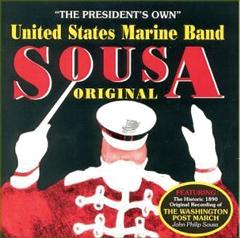
• Marching on. “The Washington Post,” the 1890 recording of the march that’s sooo DC, composed by DC-born John Philip Sousa, performed by the DC-based, Sousa-directed United States Marine Band—the country’s oldest professional musical organization making one of the first-ever musical recordings—was a hit cylinder on then-DC-based Columbia Phonograph Company, the cornerstone of the modern recording industry. Hear it on March King: John Philip Sousa Conducts His Own Marches.
• Preservation hall. With New Orleans and Chicago already in his rearview mirror, pianist and composer Jelly Roll Morton was a faded jazz pioneer when he settled here in the ’30s to play (and manage) the Jungle Inn on U Street, Northwest. In 1938, folklorist Alan Lomax recorded a Morton-centric history of jazz over several weeks at the Library of Congress’s Coolidge Auditorium. Two years later, Lomax did the same with Woody Guthrie at the Department of the Interior. Both Library of Congress recordings are remarkable musical and historical documents of quintessential American music, proof of the importance of federal culture funding.
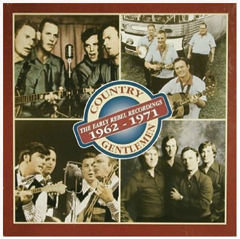 • Bluegrass capital. We stretch borderlines a bit in claiming southwest Virginia’s seminal Carter Family and the Stanley Brothers, but we have total claim to the two greatest second-generation bluegrass acts, the Country Gentlemen and the Seldom Scene. For the Gents, try The Early Rebel Recordings 1962–1971 box set; for the Scene, Act III or the all-star 15th Anniversary Celebration, recorded at the Kennedy Center.
• Bluegrass capital. We stretch borderlines a bit in claiming southwest Virginia’s seminal Carter Family and the Stanley Brothers, but we have total claim to the two greatest second-generation bluegrass acts, the Country Gentlemen and the Seldom Scene. For the Gents, try The Early Rebel Recordings 1962–1971 box set; for the Scene, Act III or the all-star 15th Anniversary Celebration, recorded at the Kennedy Center.
• Virginia songbirds. Patsy Cline and Emmylou Harris blazed trails in different generations with their astonishing voices, song divination, and equal-footing attitudes. Patsy Cline’s Greatest Hits belongs in anyone’s collection. For Harris, it’s Pieces of the Sky and Rhino’s boxed Anthology.
• Pickers’ paradise. In terms of virtuosity, range, and influence, it’s hard to beat Washington’s guitar legacy: Charlie Byrd, Bill Harris, John Fahey, Link Wray, Roy Clark, Roy Buchanan, and Danny Gatton. I’m going with Hot Rod Guitar—The Danny Gatton Anthology as a reminder of overarching greatness that never met its reward.
• Quiet storms. Roberta Flack—Howard grad, DC teacher, Capitol Hill lounge treasure—we remember the first time ever we heard her voice. Shirley Horn mined cool ballads and romantic lyrics for exquisite, unrivaled expression. Flack’s First Take was her best, Horn’s Here’s To Life forever affirming.
• Dancing kings. Van McCoy gave us “The Hustle,” but no one has kept Washington movin’ and groovin’ over the decades like Chuck Brown, the Ellington of go-go funk. Your Game: Live at the 9:30 Club Washington, DC presents the Godfather winding us up and bustin’ loose with some of his peers helping to trace a remarkable journey and memorialize DC’s only truly indigenous sound.
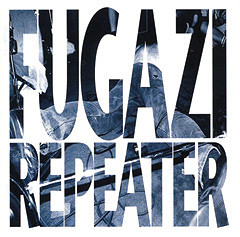 • Hard core. Like the Velvet Underground, Bad Brains and Minor Threat/Fugazi helped launch hundreds more bands nationwide, seeding the American hard-core punk movement in the early ’80s (in Fugazi’s case, the postpunk movement). I like the self-titled debut for Bad Brains (with a cover of the Capitol being zapped by lightning); for Minor Threat, Complete Discography; for Fugazi, Repeater.
• Hard core. Like the Velvet Underground, Bad Brains and Minor Threat/Fugazi helped launch hundreds more bands nationwide, seeding the American hard-core punk movement in the early ’80s (in Fugazi’s case, the postpunk movement). I like the self-titled debut for Bad Brains (with a cover of the Capitol being zapped by lightning); for Minor Threat, Complete Discography; for Fugazi, Repeater.
• Easy pickin’s. Elizabeth “Libba” Cotten, discovered as a domestic for the classical and folk scholar/singer Seeger family in the mid-’50s, popularized a finger-picking style called, naturally, Cotten-picking—try her Freight Train and Other North Carolina Folk Songs and Tunes on Smithsonian Folkways. Virginia blues guitarists John Jackson and John Cephas helped revitalize the sophisticated Piedmont finger-picking style. Hear Jackson’s eponymous album, subtitled “Step It Up and Go,” on the Rounder label and Cephas’s Dog Days of August with his long-time partner harpist, Phil Wiggins; the two first met at a Folklife Festival on the Mall.
• One voice, many voices. Eva Cassidy’s astonishing voice and borderless art were silenced far too early; originally self-pressed, Live at Blues Alley was the only album released before her passing. Sweet Honey in the Rock mixes stunning a capella singing with social justice and the most musical of journeys through African-American history and culture, best captured in the Live at Carnegie Hall album.
This article first appeared in the March 2009 issue of The Washingtonian. For more articles from that issue, click here.

